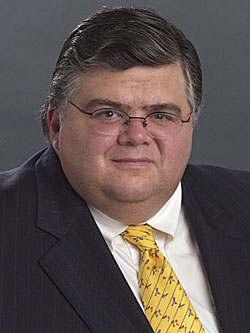 |
|
Augstin Carstens phot is courtesy of the IMF Website |
BASSETERRE, ST. KITTS, DECEMBER 6TH 2005- An International Monetary Fund (IMF)-authored Report on economies of member countries of the Eastern Caribbean Currency Union (ECCU), will be presented to Governor of the Eastern Caribbean Central Bank (ECCB) Sir K. Dwight Venner on Wednesday.
Deputy Managing Director of the International Monetary Fund (IMF), Mr. Agustin Carstens, who is leading an 8-member delegation to member countries in meetings with Prime Ministers and Ministers of Finance of the Eastern Caribbean Currency Union (ECCU), arrived in St. Kitts on Tuesday afternoon.
In Basseterre, they will meet with Prime Minister and Minister of Finance, Dr. the Hon. Denzil L. Douglas, Cabinet Ministers and officials of the Ministry of Finance. The group, which has already visited Antigua and Barbuda, will go on to Dominica and Grenada after leaving St. Kitts.
The report on the ECCU economies, which is part of a Regional Outlook Report, will be presented by Director of the IMF's Western Hemisphere Department, Mr. Anoop Singh.
Following the presentation, the IMF team will engage journalists from across the member territories of the Eastern Caribbean Currency Union (ECCU) on financial and economic issues to the ECCU region via a 90-minute videoconferencing from the Basseterre-based ECCB Headquarters.
Mr. Carstens and his team will also meet with officials of the Sugar Transition Office and representatives of the tourism sector.
Carstens, who has been Deputy Managing Director of the IMF since August 2003, is making his first visit to the region. The visit is part of the effort by the IMF to strengthen its relationship with the Caribbean region and the Eastern Caribbean Currency Union.
On the eve of the visit, Mr. Carstens said that "while the challenges that the countries face are very deep, in many aspects there has been progress."
In an interview with Reuters, Carstens noted that progress had occurred despite challenges stemming from the effects of natural disasters, the erosion of trade preferences for sugar and bananas, and a huge debt burden. For instance, Dominica had shown a "remarkable turnaround in its performance" and the IMF wanted "to praise the work that the people of Dominica have done."
Mr. Carstens said that the IMF was also "pleasantly surprised" at how well Grenada was recovering from the effects of Hurricane Ivan and added that Grenada own fiscal efforts, combined with support from donors and creditors, had put the country's economy "back on track" and growth exceeding 6 percent could be expected next year.
His stop in Antigua and Barbuda was intended to "fine tune" the IMF's collaboration with the ECCU countries.
"Part of it is to enhance my knowledge of the region, to listen, and that will help us in the institution to reshape our interaction with the countries," Carstens said.
Previewing this discussion in his interview with Reuters, Carstens said the IMF and other international institutions are working with the countries to put "together a plan to address the issue of competitiveness, to be able to attract foreign direct investment, and induce further development of the private sector in areas that would give them other growth opportunities. We're preparing them to embrace fully globalization."
The IMF official noted that the institution's Executive Board had just approved a new "exogenous shocks facility" to provide financial assistance expeditiously to countries facing a balance of payment needs as a result of declines in commodity prices, natural disasters, or other shocks.
Carstens said he would make the governments in the ECCU region aware that "such a facility exists" as part of a range of financing and other help that is available from the IMF.
He noted that the IMF's engagement with the ECCU countries in recent years has been "mostly through policy advice and a very frank dialogue."